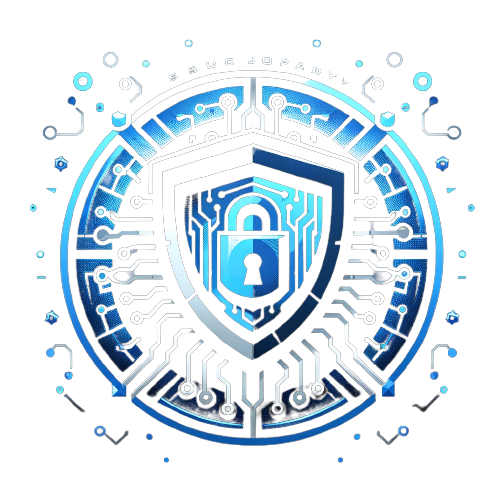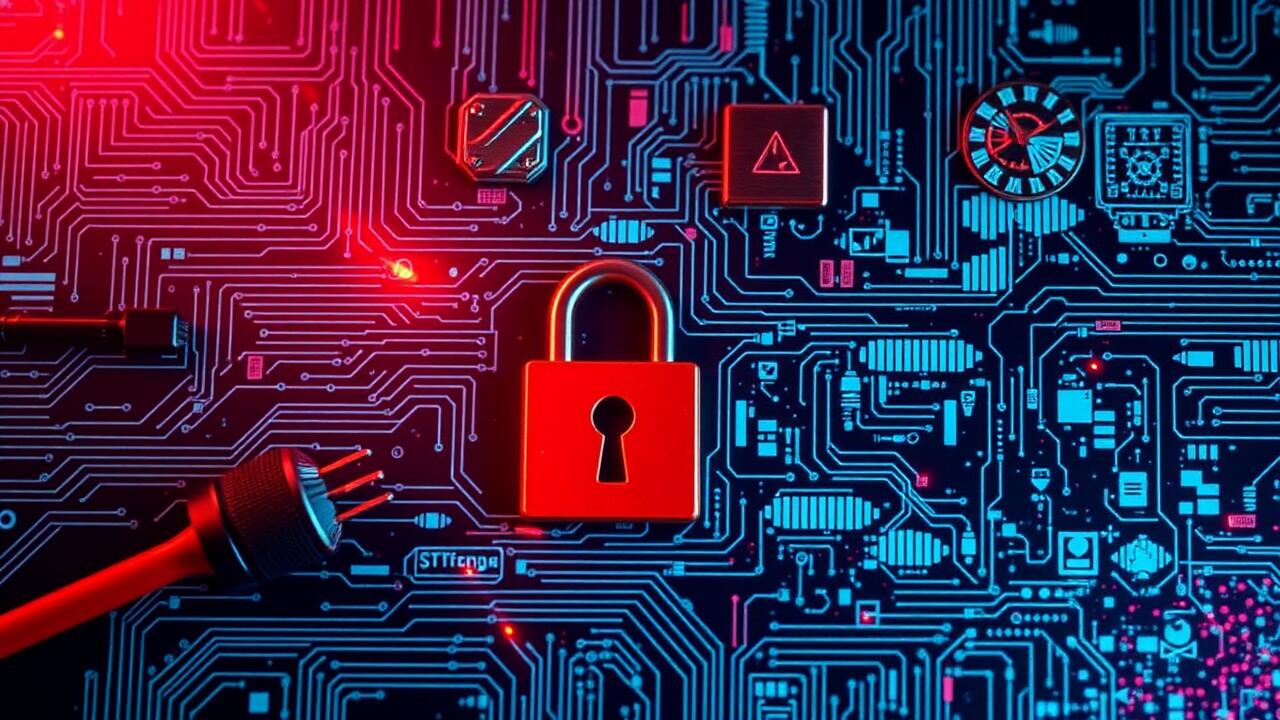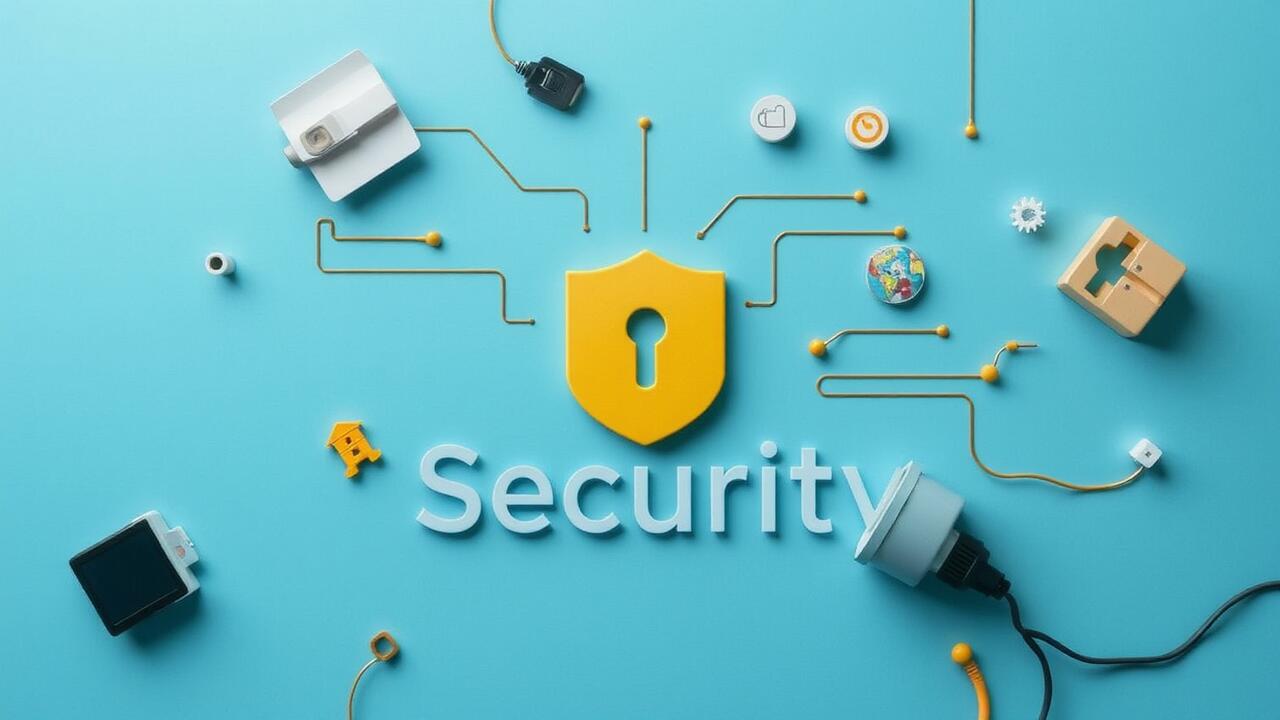Legal Considerations in Ethical Hacking
Ethical hacking, a curious dance on the fine line of legality, unfolds within a labyrinth of laws and regulations that define its limits and practices. Those who call themselves ethical hackers must tread carefully, adhering to stringent legal guidelines lest they inadvertently slip into the murky waters of illegality. A keen understanding of statutes like the Computer Fraud and Abuse Act (CFAA) is vital for these digital sleuths in the United States; crossing such boundaries can lead to grave consequences—think hefty penalties or even irreversible damage to one’s professional standing.
But it doesn’t stop there! Beyond federal edicts, each state—and sometimes local jurisdictions—may weave their own intricate tapestry of rules governing cybersecurity endeavors. This patchwork demands strict compliance if ethical hackers wish to uphold standards that inspire trust among clients. Obtaining explicit permission before launching any tests isn’t just a courtesy; it’s an essential safeguard for both hacker and organization alike. Navigating this convoluted legal landscape requires not just awareness but also an ongoing commitment to educate oneself about these obligations, reinforcing those foundational principles that make ethical hacking more than just a job—it’s a moral compass guiding technology’s frontier.
Understanding the Laws Surrounding Ethical Hacking Practices
Ethical hacking navigates a labyrinthine legal landscape, meticulously crafted to shield both individuals and organizations from the digital perils lurking in cyberspace. A patchwork of statutes, such as the Computer Fraud and Abuse Act (CFAA) in the United States, delineates what actions are permissible within this intricate domain of cybersecurity. For ethical hackers, grasping these legal boundaries is not merely advisable—it’s absolutely imperative to avoid straying into illicit territory. Breaching these laws can unleash a torrent of severe consequences—think hefty fines or even incarceration—which highlights just how essential it is to stay vigilant about evolving regulations.
But wait—there’s more! Securing consent from the target organization stands as a cornerstone for maintaining both legal and ethical integrity. Ethical hackers must typically garner formal authorization before diving into tests or investigations on any system—they can’t just leap without looking! This consent transcends mere best practice; it’s an absolute legal necessity that safeguards both the hacker and the organization alike. Moreover, data protection frameworks like GDPR impose stringent mandates on handling personal information during penetration testing and vulnerability assessments. By adhering to these laws, ethical hackers not only sidestep potential legal landmines but also cultivate trust with the organizations they endeavor to support—a dual win for all parties involved!
| Law/Framework | Country/Region | Key Provisions | Potential Consequences for Breach |
|---|---|---|---|
| Computer Fraud and Abuse Act (CFAA) | United States | Defines unauthorized access to computer systems | Fines and imprisonment |
| General Data Protection Regulation (GDPR) | European Union | Regulates processing of personal data and requires consent | Hefty fines (up to €20 million) |
| Cyber Crimes Act | Various Countries | Addresses illegal cyber activities and hacking | Fines and potential jail time |
| Health Insurance Portability and Accountability Act (HIPAA) | United States | Protects medical information privacy and security | Fines and civil penalties |
Real-World Applications of Ethical Hacking
Organizations across a myriad of sectors are harnessing the power of ethical hacking to fortify their cybersecurity defenses in an ever-evolving digital landscape. By meticulously simulating potential attack scenarios, these ethical hackers unearth vulnerabilities lurking within systems—waiting for nefarious actors to pounce. Take financial institutions, for example; they often engage in rigorous penetration tests with laser focus on exposing weaknesses that might plague their online banking platforms. Such proactive measures don’t merely shield sensitive customer data; they play a pivotal role in nurturing and sustaining trust between the institution and its clientele.
Moreover, let’s not overlook another vital facet: compliance and regulatory adherence loom large over many industries ensnared by stringent regulations dictating specific security protocols. Ethical hacking serves as a guiding light for these organizations, illuminating pathways to comply with standards like the Payment Card Industry Data Security Standard (PCI DSS). Through regular security assessments—a rhythm akin to breathing—companies can ensure they meet legal mandates while simultaneously bolstering their overall security posture against an array of threats that lurk just beyond the firewall.
Case Studies Highlighting Successful Ethical Hacking Interventions
In 2016, a prominent financial institution took a bold leap into the world of cybersecurity by enlisting the help of ethical hackers to probe the depths of its online banking platform’s defenses. The team launched simulated attacks, peeling back layers and exposing vulnerabilities lurking in the shadows—weak encryption protocols here, outdated software components there. It was a race against time; by confronting these issues head-on before any real-world exploitation could take place, this institution not only shielded its sensitive customer data but also sidestepped potential financial pitfalls and reputational wreckage. This proactive intervention served as a glaring testament to the necessity of vigilance in preserving trust and integrity within the ever-evolving landscape of banking.
Equally compelling was another incident involving a healthcare provider that found itself ensnared in the clutches of ransomware. In response, they tapped ethical hackers once more—to delve deep into their systems and devise an ironclad strategy for recovery. What did they uncover? The entry point exploited by cybercriminals turned out to be an innocuous phishing email aimed squarely at unsuspecting staff members. With newfound knowledge in hand, they rolled out extensive training sessions for employees while layering on additional security measures—a concerted effort that fortified their defenses against future assaults. This scenario underscored not just the pivotal role ethical hacking plays in pinpointing risks but also its vital contribution to cultivating an organizational culture steeped in security awareness.
Ethical Hacking Techniques and Tactics
Ethical hackers wield a diverse arsenal of techniques, diving deep into the intricate web of system security to unearth and fortify vulnerabilities. At the heart of their practice lies penetration testing—a method where these digital sleuths mimic cyber-attacks, probing an organization’s defenses for chinks in their armor. This dance between offense and defense often blends automated tools with good old-fashioned manual scrutiny, revealing those lurking weaknesses that nefarious hackers might exploit.
But wait—there’s more! Enter social engineering, that crafty artful dodger which manipulates human psychology itself. Picture this: ethical hackers orchestrating phishing simulations not just as mere exercises but as enlightening wake-up calls for employees about lurking dangers. It’s all part of a grander scheme to arm organizations against those devious tricks that prey on our very nature.
Then there’s vulnerability assessment—a meticulous endeavor involving systematic scans across systems and applications to unveil security flaws hiding in plain sight. Tools like Nessus or OpenVAS come into play here, painting a detailed picture brimming with insights about what needs immediate attention. And let’s not forget the vigilant eye of network monitoring! With it comes continuous surveillance over traffic patterns; spotting anomalies becomes second nature—each blip potentially signaling malicious activity waiting to pounce.
In this whirlwind landscape of cybersecurity threats that morph at lightning speed, adopting a proactive stance is non-negotiable. By harnessing such an eclectic mix of strategies and tools, ethical hackers weave together a resilient security framework for organizations—ensuring they stand firm against whatever digital storm may come their way!
Exploring the Various Techniques Employed by Ethical Hackers
Ethical hackers wield an eclectic array of techniques, each one a brushstroke on the canvas of system and network security enhancement. At the heart of their arsenal lies penetration testing — a daring act where these professionals don the mantle of cyber marauders, launching simulated attacks to unearth vulnerabilities lurking within an organization’s very infrastructure. This intricate dance can take myriad forms: black-box testing shrouded in mystery, white-box testing illuminated by insider knowledge, or gray-box testing straddling both worlds. Each variant invites hackers to view the target through distinct lenses, revealing secrets that might otherwise remain hidden.
But that’s just one piece of this complex puzzle! Enter vulnerability scanning — a relentless pursuit fueled by automated tools that tirelessly scour software and hardware configurations for weaknesses. Like watchful sentinels, ethical hackers conduct these scans with regularity; they’re not merely looking for cracks but rather anticipating new fractures that may arise from software updates or other shifts in digital landscapes.
And let’s not overlook social engineering—a cunning art form woven into their toolkit—where manipulation reigns supreme. Here, hackers charm or deceive individuals into surrendering sensitive information; it’s as much about understanding human psychology as it is about technology itself. These varied methods paint a vivid picture of ethical hacking’s multifaceted character and underscore its pivotal role in shaping modern cybersecurity practices today.
Building an Ethical Hacking Lab
Crafting a dynamic ethical hacking lab is an essential milestone for those venturing into the labyrinthine world of cybersecurity. This sanctuary offers a safe haven to delve into and practice an array of hacking techniques, all without the dread of wreaking havoc on actual systems swirling in the real world. At the heart of this endeavor lies a well-constructed virtual environment, meticulously designed to replicate diverse operating systems and network configurations. Tools like VirtualBox or VMware emerge as pivotal players here, permitting the creation of isolated instances that beckon experimentation.
But wait—let’s not neglect hardware! A dedicated machine boasting robust processing power and generous memory serves as your steadfast ally, ensuring that those virtual machines run with seamless grace. And oh, how exhilarating it can be to tweak network setups! By simulating both internal and external attack surfaces, you breathe life into your lab’s realism. Layer upon layer emerges: implementing security measures such as firewalls and intrusion detection systems adds another dimension entirely—a reflection of real-world scenarios ethical hackers might face in their quests.
This rich tapestry not only hones skills but also cultivates an unshakeable confidence when navigating the myriad challenges strewn across the cybersecurity landscape. Welcome to your playground; let exploration commence!
Setting Up a Safe Environment for Learning and Practicing
Crafting a safe haven for ethical hacking endeavors is absolutely paramount for truly effective learning. One particularly dynamic strategy involves the establishment of a virtual lab, leveraging software tools like VirtualBox or VMware. These applications empower users to conjure up isolated virtual machines, where they can intricately simulate an array of operating systems and network configurations. The golden rule? Keep these environments entirely disconnected from the vast expanse of the internet—this precautionary measure helps avert any unintended repercussions arising from experiments or tests gone awry. Furthermore, piecing together a thorough overview of the myriad tools and resources nestled within this lab can dramatically amplify the learning journey.
But wait! Introducing realistic scenarios into this crafted lab environment can take training to exhilarating new heights! Engaging platforms such as Kali Linux unlock access to a treasure trove of pre-installed tools meticulously designed for penetration testing. Imagine setting up challenges like Capture The Flag (CTF) events; these not only ignite problem-solving prowess but also nurture that competitive fire among learners! Practicing in this controlled arena ensures that aspiring ethical hackers refine their skills without ever jeopardizing the integrity and security of real-world systems.
Future Trends in Ethical Hacking
The realm of ethical hacking is in a constant state of flux, swirling with the ever-increasing intricacies of cyber threats and our deepening dependence on digital infrastructures across myriad sectors. Picture this: emerging technologies like artificial intelligence and machine learning are not just tools; they’re becoming the very lifeblood for ethical hackers. These cutting-edge advancements pave the way for swifter vulnerability assessments and sharper threat detection, giving professionals that crucial edge over lurking exploits. As adversaries adopt increasingly convoluted techniques, it’s imperative for ethical hackers to evolve—melding these high-tech resources into their strategies—to maintain a proactive stance in cybersecurity.
But wait, there’s more! A striking trend materializing on the horizon is the burgeoning alliance between organizations and ethical hackers—a partnership that has become essential in effectively countering the escalating surge of cybercrime. Businesses are now reaching out to these guardians of cyberspace through bug bounty programs, offering them platforms to uncover and disclose vulnerabilities before they fall prey to malicious actors. This symbiotic relationship not only empowers those committed to ethics but also cultivates a community-driven ethos aimed at bolstering cybersecurity measures overall. With threats growing ever more intricate, so too will be our collective need for innovative collaboration frameworks—ensuring we build an impregnable defense against potential incursions into our digital lives.
Preparing for the Evolving Landscape of Cybersecurity Threats
As the relentless march of technology strides forward, the strategies wielded by cybercriminals morph into ever more intricate forms. Ethical hackers find themselves in a constant state of alertness, needing to refresh and expand their arsenal of knowledge and skills to stave off these emerging dangers. This endeavor demands an acute awareness of contemporary cybersecurity trends — think about the surge in artificial intelligence and machine learning! These dual-edged technologies can bolster defense mechanisms while simultaneously birthing new vulnerabilities that ethical hackers must ingeniously tackle.
But wait, there’s more! The power of collaboration within the cybersecurity community cannot be overstated; it is absolutely vital for crafting effective responses to these shifting threats. The act of sharing intel on potential weak spots or nefarious cyberattack tactics equips ethical hackers with the insights necessary for developing holistic strategies to fortify systems against incursions. Organizations should make it a priority to invest in training and development for their ethical hacking teams—ensuring they’re armed with cutting-edge tools and methodologies. By forging alliances and engaging in forums, they can cultivate a formidable bulwark against the ceaselessly evolving landscape of cyber perils!
- Establish regular training programs to keep ethical hackers updated on the latest threats and technologies.
- Foster collaboration by participating in information-sharing platforms and industry forums.
- Invest in advanced tools and technologies to enhance the capabilities of cybersecurity teams.
- Develop a robust incident response plan that incorporates lessons learned from past attacks.
- Promote a culture of cybersecurity awareness across all levels of the organization.
- Encourage continuous learning and certification in specialized cybersecurity areas.
- Evaluate and update security protocols regularly to adapt to new vulnerabilities and threats.
Conclusion
The ever-shifting terrain of cybersecurity is a wild ride, with the role of ethical hackers emerging as more crucial than ever. As organizations grapple with an onslaught of cyber threats that seem to multiply by the day, grasping and applying ethical hacking practices becomes not just important—it’s imperative. A solid understanding of legal frameworks, diverse tactics, and tangible applications arms both individuals and businesses with the tools needed to fend off attacks on their digital treasures.
As technology hurtles forward, bringing forth new vulnerabilities like a relentless tide, the demand for skilled ethical hackers will only escalate. Ongoing education in this dynamic field is key; it keeps these defenders one step ahead of lurking dangers, ready to shield critical information from prying eyes. Adopting this proactive mindset isn’t merely beneficial—it’s vital for any sector that leans heavily on digital infrastructure.




